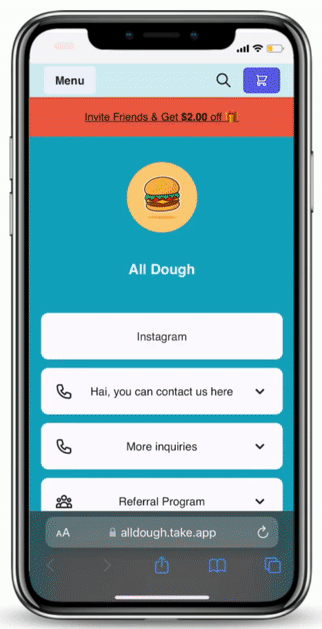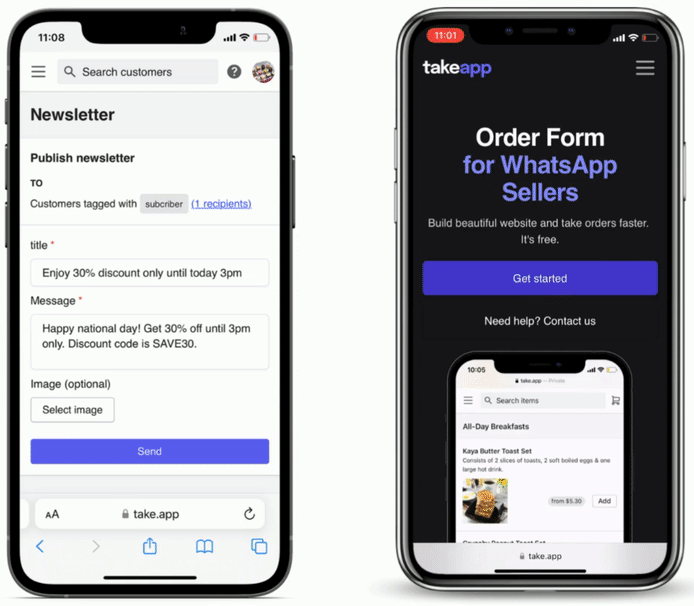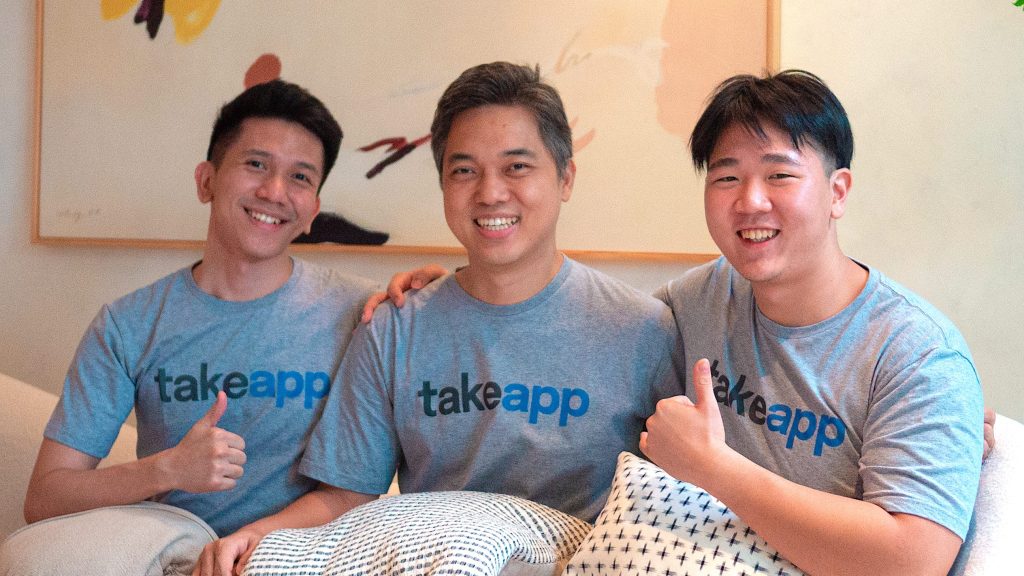WhatsApp has long transcended its roots as a simple messaging app for friends, and is now a core communication tool for businesses seeking a direct channel to their customers’ pockets — both literally and metaphorically. Countless companies have turned to the omnipresent messaging app as they build the very foundation of their business, something that hasn’t gone unnoticed by WhatsApp’s parent company.
Indeed, Meta Platforms Inc. — the corporate megabrand behind Facebook, Instagram, Messenger and WhatsApp — recently invested in Take App, a fledgling Singaporean startup founded by former Facebook engineering manager Youmin Kim, who left the social network last year to work on a new product that promises to bridge the digital gap for small-business owners in Southeast Asia. The investment came through Meta’s NPE (new product experimentation) team, which announced it would begin making seed-stage investments last year.
At its core, Take App serves as an easy way for those with little technical know-how to set up a simple website to facilitate online orders, replete with a shopping cart, payments and a direct connection to WhatsApp for managing and tracking the final order.

While restaurants are a central focus for the Take App service, the company also works with bakeries, grocery businesses and beauty salons, among others.
“Our unique selling point is that we let merchants keep direct WhatsApp conversations with customers,” Kim explained to TechCrunch. “Merchants love the idea that they receive notifications and order details directly in WhatsApp — no other app or login is required.”
On top of that, Take App is looking to help businesses drive repeat customers through maintaining a database, with support for creating and sending newsletters (like a “Mailchimp for WhatsApp”) that include special offers or relevant company updates.

While the core Take App service is free, the company offers a bunch of premium features, including things like advanced analytics, unlimited image uploads and custom domain names.
The story so far
Kim initially started Take App as a nonprofit to help small restaurants in Singapore accept online orders at the start of the pandemic, but he soon realized there was a significant opportunity to turn this into a commercial venture. Today, the company claims 1,000 businesses have used Take App from across 35 different markets, though the vast majority are based in Singapore, Malaysia and Indonesia.
Take App also recently graduated Y Combinator (YC) as part of the accelerator’s Winter 22 batch, which led YC to invest in the company as part of a $1 million round alongside Meta and an undisclosed list of angels — this seed funding round was quietly closed back in June.
Take App follows in the footsteps of other similar startups, such as Germany-based Charles, which recently raised $20 million to bring conversational commerce — and newsletters — to WhatsApp in Europe. It’s impossible to ignore the parallels here, but Kim maintains that Take App is purpose-built for a very specific type of company, in a very specific part of the world — simplicity is the name of the game.
“In Southeast Asia, WhatsApp is the most common way to talk to business, but it incurs heavy operation costs as employees have to respond to a number of conversations,” Kim said. “There are ‘western’ CRM solutions that make this more efficient, but they are too expensive or difficult for our merchants. We focus on traditional businesses with a digital gap.”































Comment